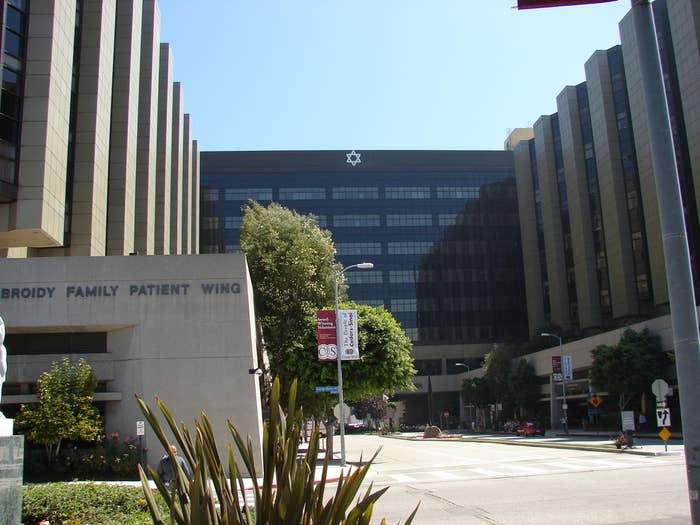
LOS ANGELES — A California ballot initiative seeking to lower hospital costs is currently gathering signatures, but a state hospital organization argues the efforts are more about bolstering union membership than making health care more affordable.
The Fair Healthcare Pricing Act, pushed by the labor union Service Employees International Union, or SEIU, would cap hospital's gross charges at no more than 25% above the actual cost of providing care.
"These prices are just outrageous," Steve Trossman, a spokesman for SEIU, told BuzzFeed. "We're just hearing story after story after story about this problem."
The group cites high costs like $21 for a single aspirin at Centinela Hospital Medical Center in Los Angeles in one of its ads.
"You really don't know how much it's going to cost before you go [to the hospital]," Trossman said. "It's like going into buy a car and signing for it before you know how much it costs."
SEIU estimates the initiative would reduce hospital costs in California by at least $3 billion annually.
A representative for the California Hospital Association said the initiative is an attempt by the union to increase its membership.
"The union is trying to pressure hospitals into signing neutrality agreements for union organizing by threatening to file these initiatives if they don't get what they want," said spokeswoman Jan Emerson-Shea. "These initiatives are dangerous, dishonest, and deceptive ... Union leaders are using the threat of these initiatives as a bargaining chip under the belief that hospitals will capitulate to their organizing demands."
The California Hospital Association estimates if successful, the initiative would reduce hospital revenue by $12 billion annually and more than 50,000 health care workers could lose their jobs.
Emerson-Shea called hospital pricing "a relic from another era," necessary because of federal requirements. "There's a difference in hospital finance between what a hospital charges and what it gets paid."
"It's a pricing system that doesn't make any sense to anyone and we'd be the first to admit it," she said. "The charges get inflated. They're meaningless numbers because no one pays them."
Trossman said he agrees "to a certain degree" that prices don't reflect what hospital patients actually pay, but said those who can least afford to pay overpriced hospital bills are often the ones who do. "No amount of verbal gymnastics can explain away a $21 aspirin or $300 crutches." He also said he "disputes" the California Hospital Association's accusation the initiative is to increase union membership.
John Romley, a research assistant professor at USC's Center for Health Policy and Economics said high hospital charges "are in most cases meaningless," but draw attention. He doubts whether the initiative would be helpful in actually lowering costs.
"I do question whether, for example, that restriction on charges is going to do anything," he said. However, "for those people (without health insurance), this might mitigate some of the pain and hassle of the process."
Two similar initiatives were filed in 2012 by the SEIU, Emerson-Shea said, however they were not passed and the SEIU and California Hospital Association reached an agreement "to work in good faith, along with other key stakeholders, to find practical solutions that can replace or improve the current hospital pricing system," according to a press release.
About 150,000 signatures were collected for the 2014 initiative in the first 10 days, Trossman said, and the group expects there to soon be 500 signature gatherers working across the state.
A commercial titled "Real Stories of Hospital Pricing" began airing in Sacramento Monday. More ads tailored to specific markets are being planned for future release, Trossman said.
The California Hospital Association has not spent "any significant money" opposing the initiative yet, but it has opened a $10 million opposition account called Californians Against Initiative Abuse.
